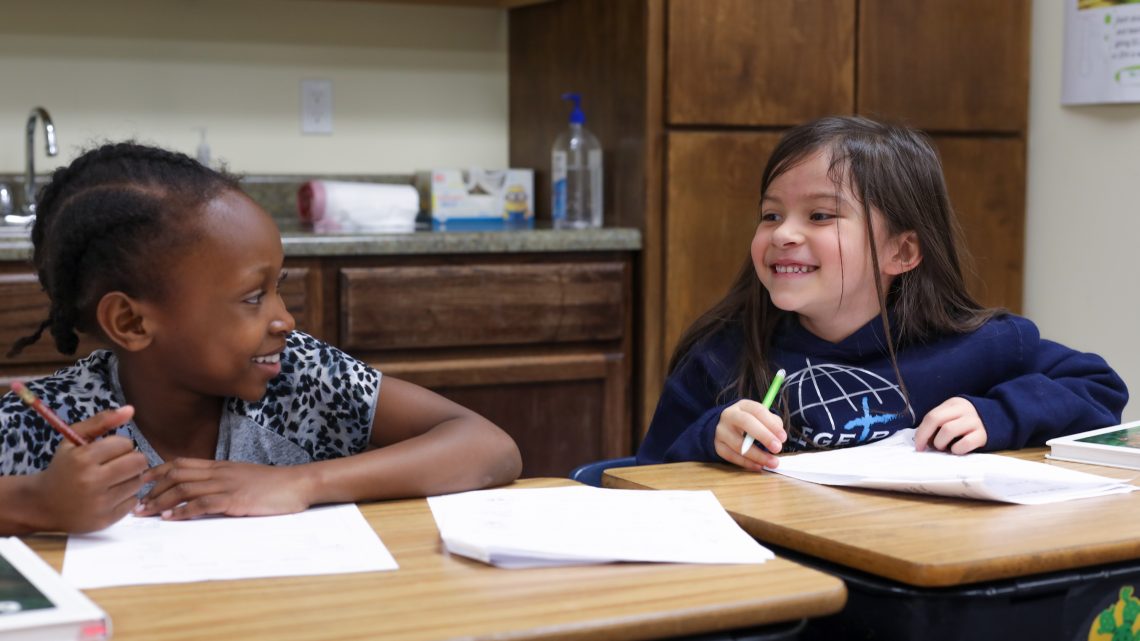Visitors to College Park Elementary School in the heart of Columbia, Missouri, will be met at the door with the unmistakable sound of fun being had.
Sandra Blackburn teaches third and fourth grade and has been teaching at College Park since 1996. She also served as principal for 15 years before stepping down to focus on her family.
“God really works in this school. We had two teachers and we’ve grown to five,” she says, reminiscing on her time at College Park. “We had 24 students and we’ve grown to over 60—so it’s been amazing.”
For Blackburn, her educational focus goes beyond “book knowledge” and into an understanding of who God is and how to fit into His plan. This, to her and the other teachers, is a key element of the mental development to which they have dedicated their lives.
Blackburn attributes the success of the school to the students’ families and close cooperation from the local church, on whose campus the school is built. “Everybody works together pretty well,” she says, admitting that problems may arise now and then. A healthy school, though, means “having people work together and be supportive of each other.”
Principal Heidi Jorgensen is busy with compound sentences in her classroom. This is her first year in Columbia, where she teaches grades 7-9.
Currently, 61 students attend from kindergarten through ninth grade. On Fridays, 10 additional students—home schooled children from the community—join the school kids for Friday morning chapel, art, music and P.E.
Growing and gaining
College Park’s mission revolves around the physical, mental and spiritual triangle of development, long a mainstay of Adventist education.
“The school opened in 1944,” explains Jorgensen once her students are busy on an assignment. “They added new classrooms a few years back…then we added an extension and finally a standalone kindergarten classroom—so it’s definitely been steadily growing over the last several years.”
Their performance has matched their ambition, routinely meeting or exceeding academic standards set by the Adventist Church and testing comparatively with public schools in their area.
“For some [students] there seems to be a little adjustment to those tests in the first few years, but they have a big jump in fifth grade,” says Jorgensen. You can imagine a child who has been in the same classroom as students in more advanced grades picking up concepts they otherwise wouldn’t be exposed to in a standard school setting.
Signs of their continuous growth also include a new chapel, remodeled from an older section of the building. While it may seem a straightforward addition to the school, a dedicated space that is inviting can go a long way in attracting a larger community.
Speaking of community, College Park has intertwined their approach to the physical side of the triangle with their outreach. A 5K fun run, open to the public, is being hosted by the school, with a pancake breakfast fund-raiser afterward.
“We have seen some great growth in this school, and I hope we can see that continue and become a center of influence here in Columbia,” says Jorgensen. To her, building community connections goes hand-in-hand with guiding children spiritually, and she sees College Park as the best platform to find “those opportunities to be able to spread the gospel with the students, families and the larger community as well.”










